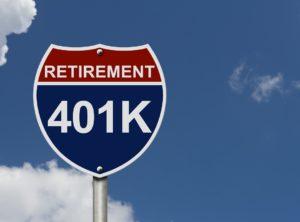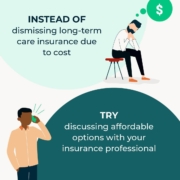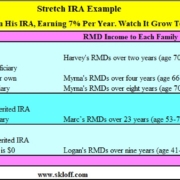Top Four 401(k) Tips and Advice – 03/01/16
Money Matters – Skloff Financial Group Question of the Month – March 1, 2016
By Aaron Skloff, AIF, CFA, MBA
Q: What are some tips on getting the most out of our 401(k) plans?
A: The Problem – Looking a Gift Horse in the Mouth
Many employers offer the ‘gift’ of a 401(k) retirement plan as a benefit to attract and retain valuable employees. Unfortunately, many employees delay participating or simply do not participate in these plans.
Excuses range from the $10 per paycheck minimum contribution is ‘too much money’ to ‘I’ll get to it later in the year’. The problem with delaying is that time is the enemy in building a retirement nest egg.
The Solution — Get the Most from Your 401(k)
Many of us know the story of the slow tortoise winning the race against the fast hare. The same applies to your 401(k). Let’s compare Slow Sue to Fast Fred. Slow Sue saves $5,000 per year for 30 years for a total of $150,000, earning 8% per year. Fast Fred delays contributions for 15 years, but contributes $10,000 for 15 years for a total of $150,000 and also earns 8%. When they retire on the same day, Slow Sue has $625,000 while Fast Fred has $290,000.
The earlier you get started, the better off you generally are.
1. Maximizing Your Contributions.
In 2016, employee contribution limits are $18,000 per year if you are under age 50 or $24,000 if you are age 50 or older. Maximize your contributions within your budget. The annual contribution limits are a one shot deal. You can never tell your employer, ‘my finances were tight last year so I skipped my $18,000 contribution – just double it to $36,000 this year.’ Each year is a use-or-lose-it opportunity.
2. Employer Match.
Many employers offer a match to your contributions. For example, many employers will match $1 of your savings by contributing $1. This is like a 100% return on your investment.
Clearly understand if your employer’s contributions vest immediately or if they vest over time (e.g.: 20% vesting per year over five years). Clearly understand when your match will occur. If your match vests immediately and is made each time you make a contribution, you have less at stake if you transition to a new employer in the middle of the year. If your match vests at the end of the year and your employer matches at the end of the year, you have more at stake with a middle of the year transition to a new employer.
3. Maximizing Your Risk-Adjusted Return.
Many of us have heard the rumblings around the water cooler: ‘You can’t loose money in gold, so put all your 401(k) money in the gold fund’ or ‘Real estate never goes down, so put all your 401(k) money in the real estate fund.’ So, which is it? Probably neither. Maximizing your risk-adjusted return entails building a portfolio of investments based on your risk level, expected return, goals and objectives. In the face of the longest and oldest bull market in fixed income securities, many investors have falsely lulled themselves into believing all fixed income investments are still safe havens. On the other hand, many investors falsely believe equity investments are inherently dangerous investments even though they are a strong hedge against developing inflation.
4. Professional Management.
Portfolio management of your 401(k) is not for the faint of heart. For example, the average equity investor’s average annual return for the 20 years ending December 31, 2014 was 5.2%. This compared with a 9.9% average annual return for the S&P 500 equity index for the same period. The primary culprit for the weaker performance was poor timing of the market. The average investor sells during downturns and buys back “when things look better”. With so much at stake, have your 401(k) account professionally managed.
Action Steps. Start contributing early, maximize your employer match and have your 401(k) account professionally managed. Have your account professionally managed by a private Registered Investment Advisory (RIA) firm that is obligated by law to act in your best interest before any other party, including shareholders of the RIA.
Aaron Skloff, Accredited Investment Fiduciary (AIF), Chartered Financial Analyst (CFA) charter holder, Master of Business Administration (MBA), is the Chief Executive Officer of Skloff Financial Group, a Registered Investment Advisory firm. The firm specializes in financial planning and investment management services for high net worth individuals and benefits for small to middle sized companies. He can be contacted at www.skloff.com or 908-464-3060.












